7 Processed Foods That Pretend to Be Healthy And 8 That Actually Are
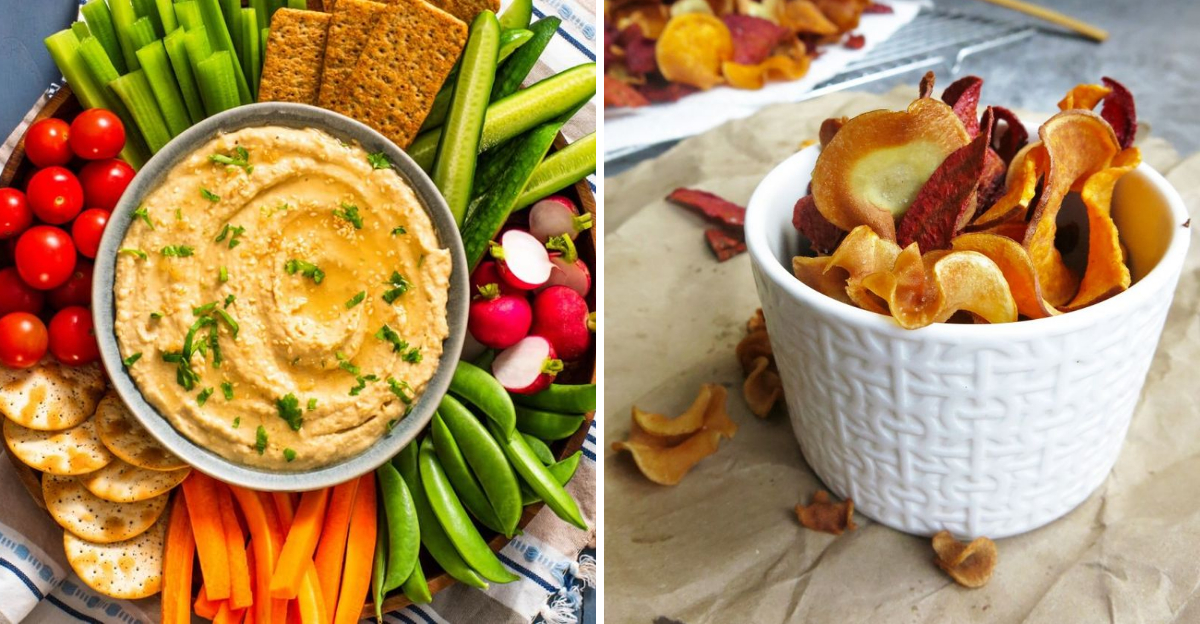
Navigating the world of processed foods can be confusing, with many items masking as healthy choices while others genuinely offer nutritional benefits. This guide unveils seven processed foods that might not be as healthy as they appear and highlights eight that truly are. By examining these choices, you can make informed decisions about what to include in your diet.
1. Flavored Yogurt

Flavored yogurt often presents itself as a health-friendly snack packed with probiotics. Yet, many of these varieties come laden with added sugars, sometimes more than a serving of ice cream. The tangy sweetness can mask the high sugar content, misleading those seeking a nutritious option. While the creamy texture and fruity flavors entice, checking the ingredients is crucial. The addition of artificial flavors and colors further deviates from its natural form. To enjoy a healthier version, consider plain yogurt with fresh fruit. This alternative maintains the beneficial probiotics without the sneaky sugars.
2. Granola Bars
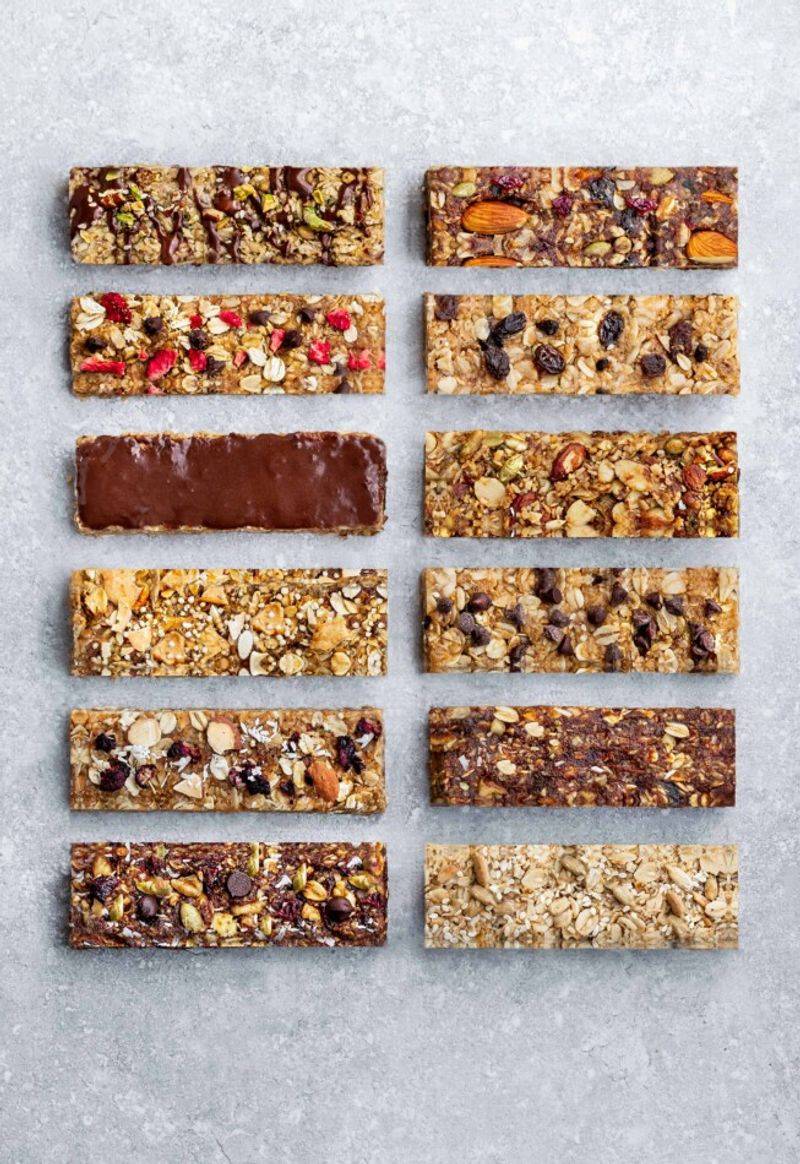
Granola bars, often marketed as convenient health snacks, can be deceptively sugary. Despite images of oats and nuts on packaging, many contain syrups and refined grains. The allure of a quick energy boost makes them popular, yet their composition can be closer to candy bars. Each bite delivers sweetness that overshadows the supposed wholesome ingredients. Consumers may overlook ingredients like high-fructose corn syrup. To ensure a healthier choice, seek bars with whole grains and natural sweeteners. Homemade versions can also control sugar content and additives.
3. Veggie Chips

Veggie chips often wear the guise of a healthy snack derived from vegetables. However, these colorful crisps frequently contain only a dusting of vegetable powder mixed with starch. The crunch and vibrant colors appeal to those seeking a healthier chip alternative. Yet, they are often deep-fried or baked with plenty of oil and salt, negating the health benefits. While the vegetable essence is present, it is minimal compared to real vegetables. Opting for raw or lightly steamed vegetables provides authentic nutrition without the extra oils or sodium.
4. Protein Cookies

Protein cookies promise a guilt-free indulgence with added benefits of protein. These treats, though, often come with processed ingredients and sugars. The chewy texture and sweet taste might suggest a healthier dessert alternative. However, they can resemble candy bars in their sugar content. The allure of muscle-building protein sometimes overshadows the less desirable ingredients. It’s essential to examine labels and choose those with minimal additives. A homemade cookie with natural ingredients can offer a more balanced option without compromising on taste or health.
5. Reduced-Fat Peanut Butter
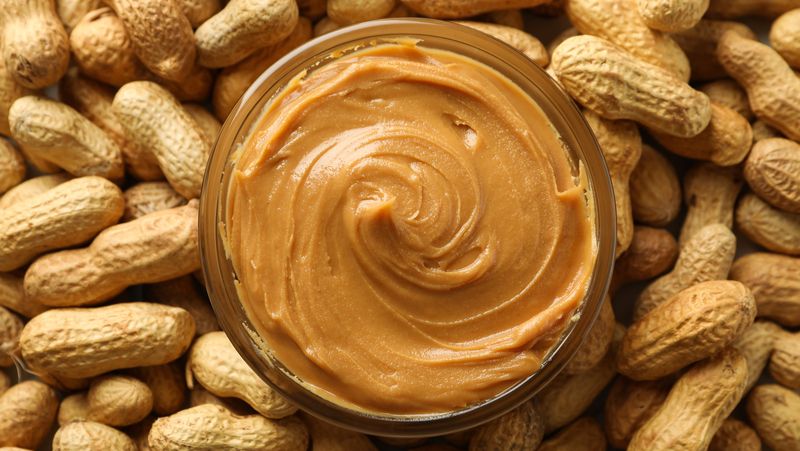
Reduced-fat peanut butter might seem like a lighter choice for nut butter enthusiasts. However, removing fat often means adding sugars and fillers to maintain taste and texture. The creamy spread can mislead those watching their fat intake. Despite its appealing nuttiness, the balance between taste and health tips unfavorably. Regular natural peanut butter, with its wholesome fat content, is often a superior choice. Choosing options with just peanuts listed as ingredients ensures purity. This choice supports heart health without unnecessary additives or sugars.
6. Store-Bought Smoothies
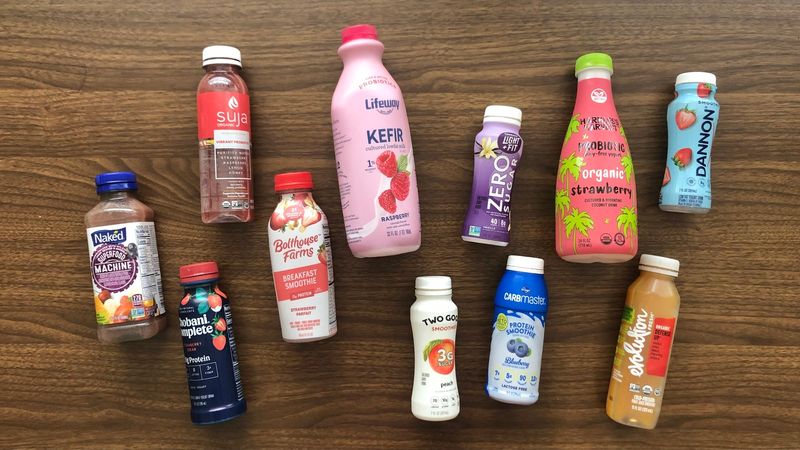
Store-bought smoothies, even those labeled “green” or “natural,” can contain hidden sugars and fruit juice concentrates. The convenience of these beverages makes them attractive to health-conscious consumers. Yet, the sweet, fruity taste often masks these added sugars. While they seem like an easy way to consume fruits and veggies, reading labels is crucial. Opting for homemade smoothies ensures control over ingredients and sugar levels. Using fresh fruits and vegetables, along with natural sweeteners, offers a genuine nutritional boost without the extras.
7. Multi-Grain Bread
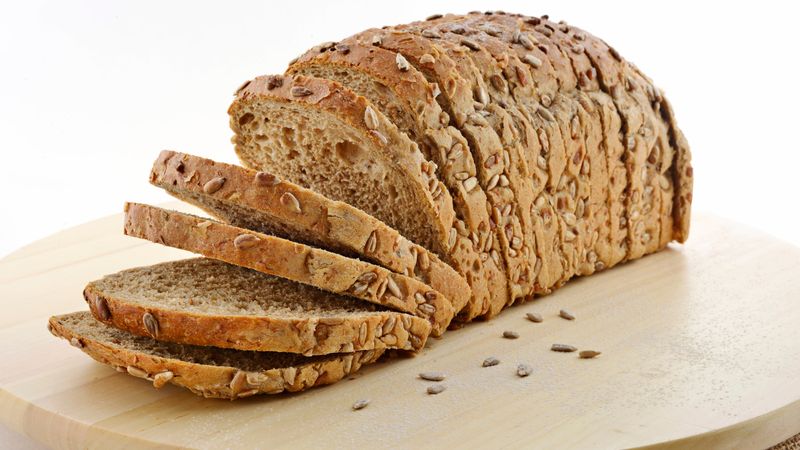
Multi-grain bread might suggest a wholesome choice, but unless it states 100% whole grain, it may include refined flour. The hearty appearance and seed topping appeal to those seeking a nutritious option. However, without whole grains as the primary ingredient, the benefits are diminished. The texture and flavor can be enticing but understanding ingredients is key. Opt for loaves labeled as whole grain to ensure fiber and nutritional content. Choosing these versions supports digestive health and provides sustained energy, unlike its refined counterparts.
8. Plain Greek Yogurt
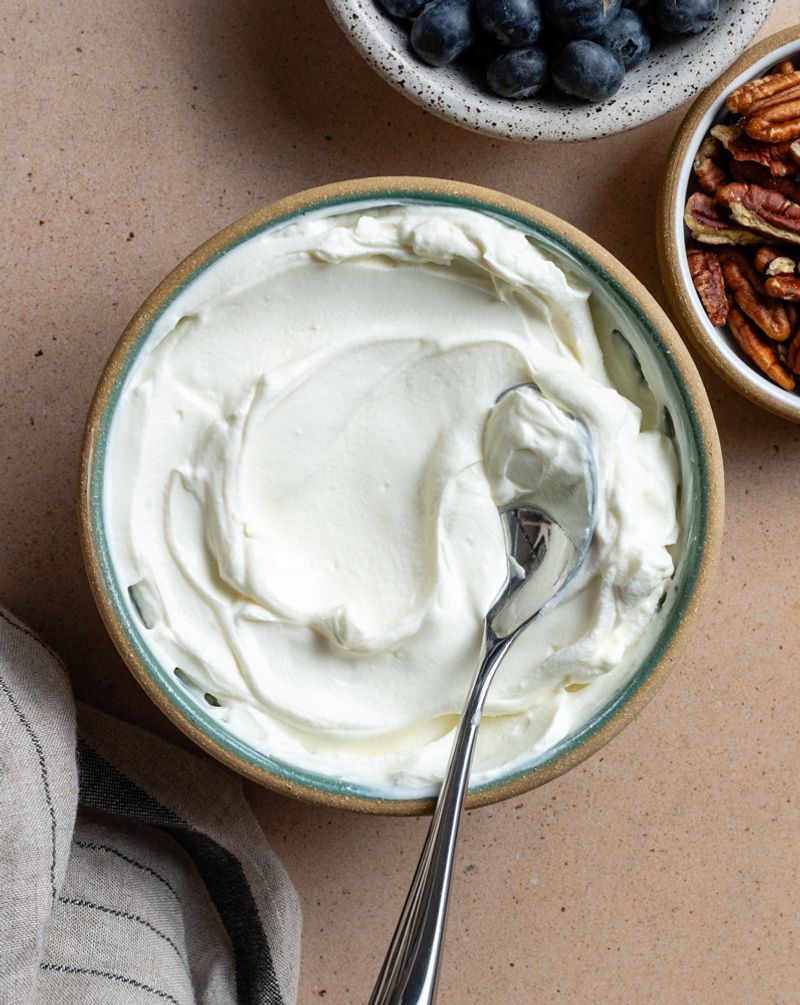
Plain Greek yogurt stands out as a genuinely healthful option. Its high protein content and probiotics make it a versatile choice for meals or snacks. The rich, creamy texture provides satisfaction without added sugars. Unlike flavored versions, it maintains its nutritional integrity. The tanginess complements both sweet and savory dishes, enhancing versatility. By pairing with fresh fruits or nuts, one can create a balanced, nutrient-rich meal. The simplicity of this yogurt makes it an excellent choice for those seeking genuine health benefits without unnecessary additives.
9. Hummus
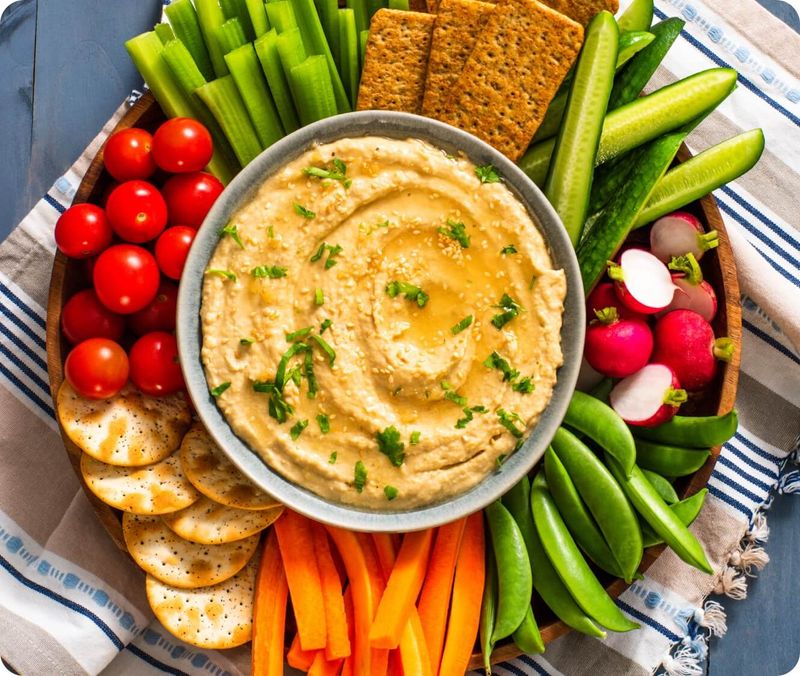
Hummus, made from chickpeas, tahini, and olive oil, offers minimal processing for a healthful snack. It provides a good source of plant-based protein and fiber, making it nourishing and satisfying. The creamy texture and savory flavor cater to diverse culinary preferences. Its versatility extends from dips to spreads, enhancing a variety of meals. Choosing brands with simple ingredients ensures maximum health benefits. The presence of healthy fats and nutrients supports heart health. Incorporating hummus in diets offers a delightful, nutritious alternative to more processed snacks.
10. Frozen Vegetables

Frozen vegetables are a convenient, nutritious option as they are flash-frozen at peak ripeness. This method locks in vitamins and minerals, maintaining their nutritional value. The bright colors and variety in bags ensure meal diversity without compromising health. Unlike canned alternatives, they usually lack added salts or preservatives. Their ease of preparation makes them a practical choice for quick meals. Examining packaging for additives is wise, but generally, they remain a wholesome choice. Including these in meals supports a balanced diet rich in essential nutrients.
11. Canned Beans (No Salt Added)
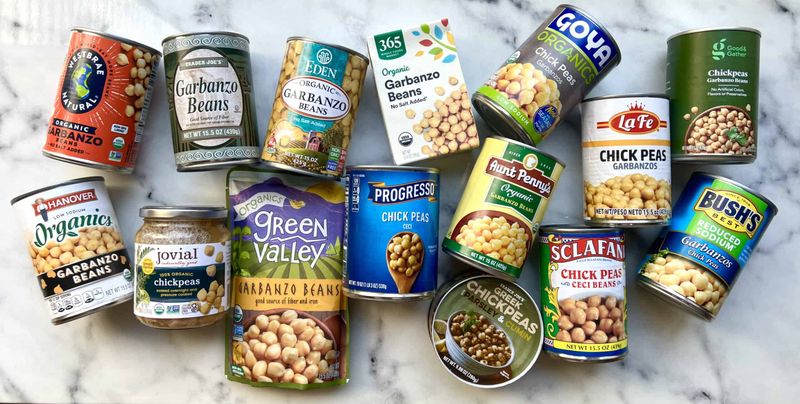
Canned beans, especially those without added salt, offer an affordable source of fiber and protein. They are ideal for quick, nutritious meals, enhancing salads, soups, and stews. The tender texture and earthy flavor provide heartiness that satisfies. Rinsing before use can reduce sodium content further, promoting heart health. These versatile legumes fit various dietary preferences, including vegetarian and vegan. Choosing no-salt-added versions ensures a cleaner ingredient list. Their accessibility and nutrient density make them a staple in health-conscious kitchens, supporting diverse, balanced diets.
12. Nut Butters (One Ingredient: Nuts)

Natural nut butters, comprised solely of nuts, offer a nutritious spread without added sugars or oils. These butters provide healthy fats and proteins, supporting heart health and satiety. The creamy texture and rich flavor enhance both sweet and savory dishes. Choosing products with just nuts listed as ingredients ensures purity and nutritional value. Their simplicity supports various dietary needs, including keto and gluten-free. Nut butters can elevate snacks or meals with their wholesome richness. Enjoying them in moderation fits within a balanced, health-focused lifestyle.
13. Whole Grain Crackers (Minimal Ingredients)
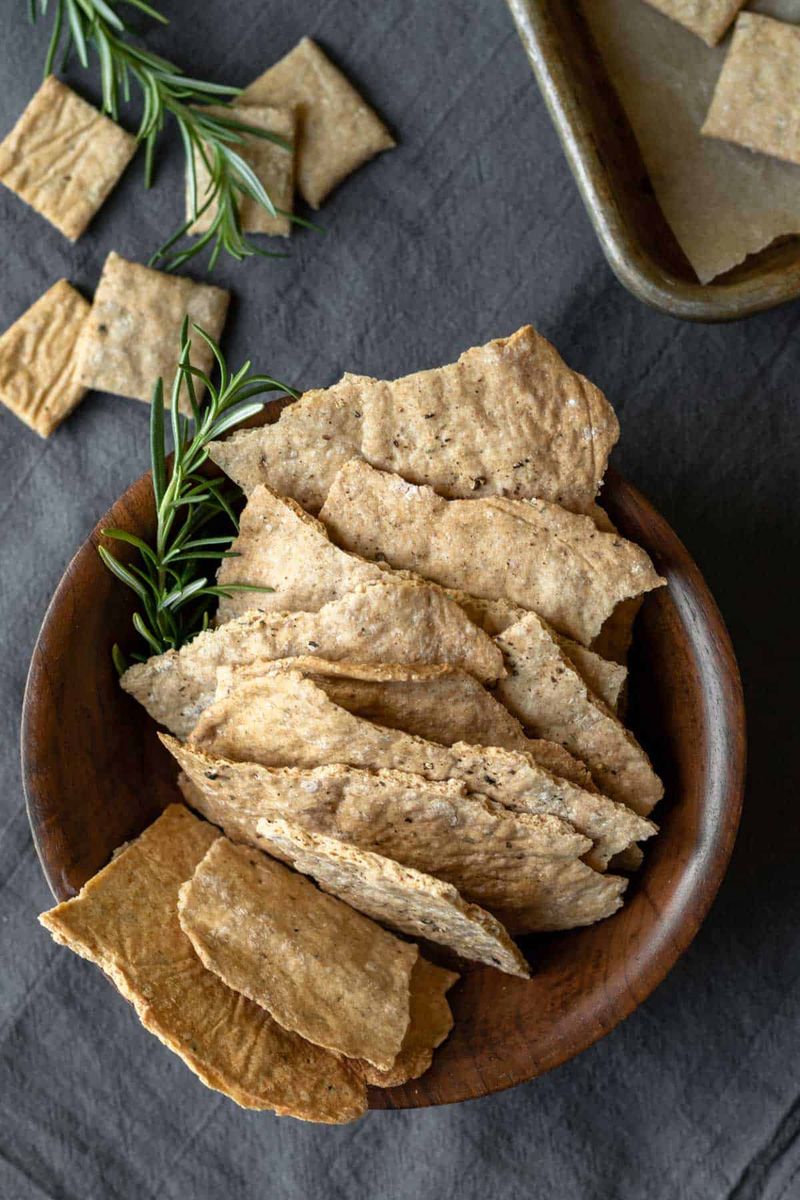
Whole grain crackers, when made with minimal ingredients, can offer a healthier snack alternative. These crunchy delights provide fiber and essential nutrients found in whole grains. The visible seeds and grains contribute to their appeal. With no added sugars or excessive fats, they remain a wholesome choice for snacking. Pairing them with cheese or hummus can make for a balanced, satisfying snack. Checking labels for whole grains as a primary ingredient ensures quality. Their simplicity and nourishing content make them a versatile, healthful addition to snack time.
14. Roasted Seaweed Snacks
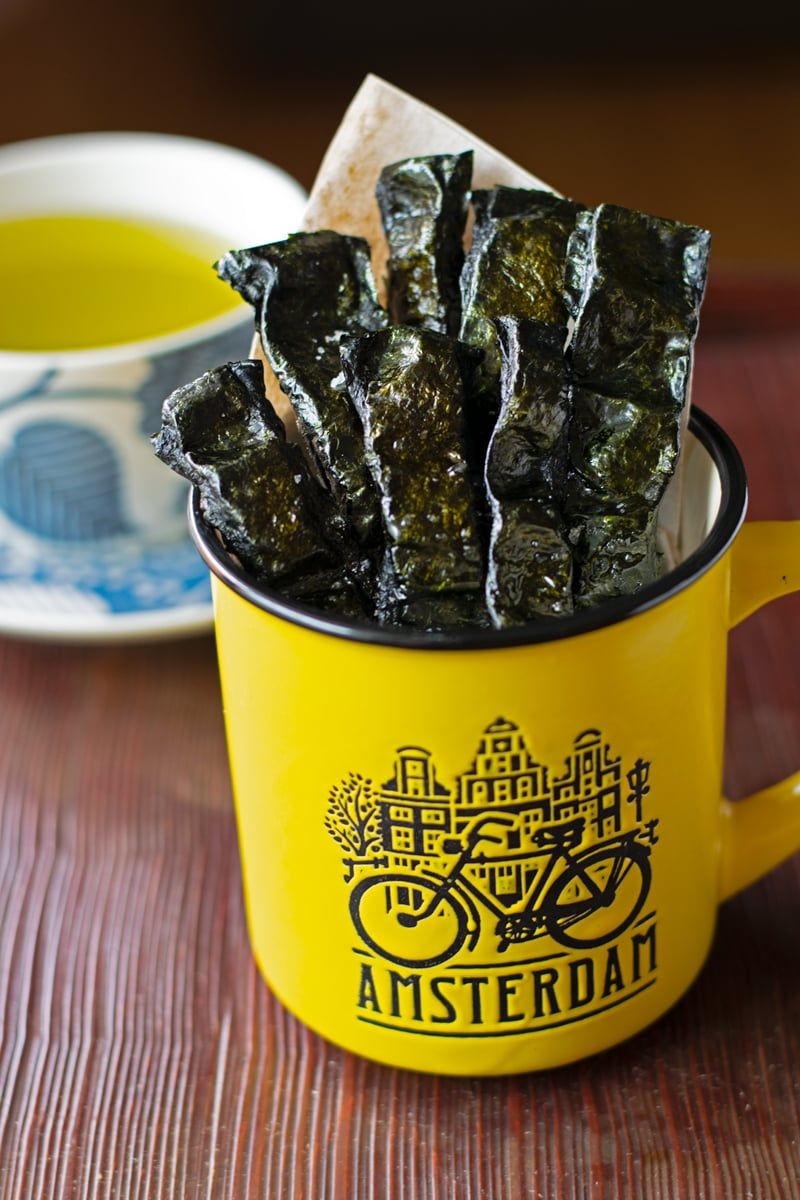
Roasted seaweed snacks, naturally low in calories, offer a unique, nutrient-rich treat. These thin, green sheets are high in vitamins and minerals like iodine. The light crunch and subtle oceanic flavor provide an intriguing snack choice. Their simplicity and health benefits make them popular among health enthusiasts. While some varieties include added oils or seasonings, choosing plain versions ensures natural goodness. The seaweed’s vibrant hue reflects its freshness, enticing those seeking a nutritious alternative. Enjoying them in moderation introduces valuable nutrients into daily diets without excess calories.
15. Canned Tuna or Salmon (Packed in Water)
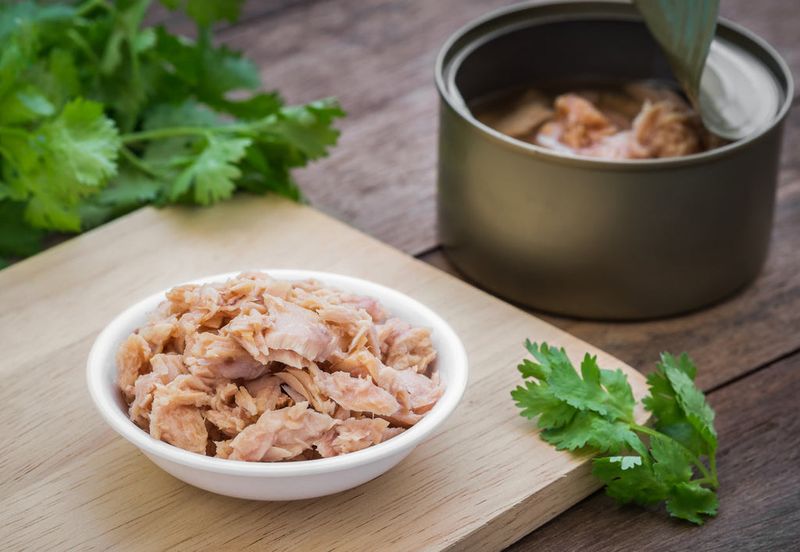
Canned tuna or salmon, especially packed in water, offer excellent sources of lean protein and omega-3 fatty acids. These nutrient-dense foods support heart health and brain function. Their mild flavor and flaky texture make them versatile in various dishes. Choosing those packed in water over oil ensures lower fat content. Whether in salads, sandwiches, or pastas, they provide convenience without sacrificing nutrition. Opting for sustainably sourced brands adds environmental benefits to their health advantages. Their portability and shelf stability make them a staple in well-rounded diets.
